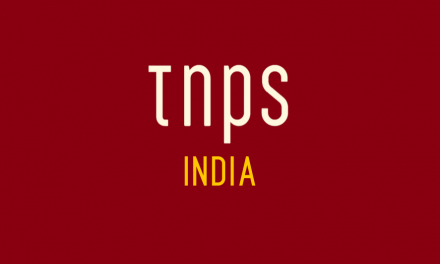African books should be gathering readers, not gathering dust in dark corners of unvisited shelves in a handful of cities able to sustain a bookstore.
It seems like only a week or two ago the Nairobi International Book Fair was in full swing, and now it’s the turn of the Nyrobi Book Fest (not a typo), a three-day event running October 13-15 at the Alliance Francaise.
This year marks the third incarnation of the book fair that aims to give Kenyan self-publishers a crack at the whip. Kenya’s The Standard has plenty of details, but just a few key points follow below, before taking a look at the bigger picture.
The Nyrobi Book Fest has plenty of attractions, among them a discussion between Msanii Kimani wa Wanjiru and Victor Ndula, the Nation Media editorial cartoonist and Celeste Wamirute Wamiru, billed as “the first female editorial cartoonist in East Africa.”
Per The Standard, Msanii runs the Reveal Comics Conversations, a monthly discussion forum with cartoonists and comic artists at the Alliance Francaise Library.
As reported for TNPS, the much bigger Nairobi International Book Fair had an impressive international participation this year.

Now, the Nyrobi Book Fest is attracting similar international participation, including South Africa’s Ssali Publishing House. Also at the event will be Dr Gladys Kalema-Zikusoka, Uganda’s first wildlife veterinarian, who has just published her memoir, Walking with Gorillas.
The origins of the Nyrobi Book Fest lay in the Covid era, when Kenyan writers connected online, and partnered with the Alliance Francaise to create a book festival that would allow them a bigger voice than the mainstream Nairobi International Book Fair, where exhibiting was an unaffordable option.
The Standard reports on the Nuria Bookstore, which is “causing a quiet revolution in Kenyan literary circles with its commitment and support of self-published authors,” and adds that other corporate stands at the Nyrobi Book Fest include Prestige Bookshop, Writers Space Africa and Mystery Publishers.
Although often seen as a western publishing phenomenon enabled by digital access, self-publishing is global, and Kenya is in an excellent position to see this sector flourish as this decade unfolds.
With 46.8 million internet users, behind only Egypt and Nigeria in the African internet stakes, Kenya has more people online than Spain or Canada, and twice as many as Australia. That’s a good starting point for an author that can’t get the interest of a mainstream Kenyan publisher constrained by overheads, printing and distribution costs and the practicalities of reaching readers outside the big cities. Its also a good starting point for mainstream publishers themselves, if still locked into a twentieth-century publishing mindset.
With digital, the whole world is suddenly your potential audience, not just the handful of booklovers who will make their way through the doors of the handful of bookstores that will actually stock your book.
Here’s the thing: every single one of those 46.8 million Kenyans online, be it through a laptop or a smartphone, has at their fingertips the ability to find and download any digital book from anywhere in the world, subject to territorial rights and having the means to pay.
Beyond that, there are 601 million people online across Africa according to the latest update from Internet World Stats, and globally a staggering 5.4 billion people are online.
Speaking before the Nairobi International Book Fair, Kenya Publishers Association chairman Kiarie Kamau, MKIM said, “African books are still not well known beyond our borders.”
Or within. Here in The Gambia, from where I write these posts, it’s difficult to even find books by Gambian authors, let alone authors from other African nations. The chances of me finding a book by a Kenyan author are sub-zero. Unless I go online and want to read digitally.
Online, I can access books by African authors – sadly mostly published by publishing houses outside the African continent, but that’s another debate for another time – but nowhere near as many as actually exist. An untold number of African authors, published in their own countries, are simply not available because the editions only exist in print in handfuls of local bookstores, at prices likely beyond affordable to most would-be readers.
It’s a crime. Books should be gathering readers, not gathering dust in dark corners of unvisited shelves in a handful of cities able to sustain a bookstore.
Even ten years ago that was, across Africa, excusable. Africa’s internet infrastructure back then was woefully behind the “developed world”, and African publishing understandably did not pay much attention to what was happening elsewhere. Landlines were few and far between. PCs and laptops unaffordable luxuries for most, even if they had a way to go online.
In 2010, Kenya had just 3 million people online. Today it is 46.8 million. There were 19 million Nigerians online in 2010. Today it’s 154 million. There were 12 million internet users in South Africa. 1.9 million in Ghana. Digital reading in 2010? Of course African publishers were not taking digital seriously. Who could blame them?
But in 2023, many publishers around the globe are still partying like it’s 2009, seemingly unaware the world has left them behind. This chart looks at the top African nations by internet users today, compared to 2010.

Just below these come Sudan (13.1 million internet users), Cote d’Ivoire (12.2), Zambia (9.8). Senegal (9.7), Cameroon (9.1) and Zimbabwe (8.4).
Unbelievable as it may sound, Africa has added over a half billion internet users since 2010, yet many Africa’s publishers seem oblivious to this fact. Oblivious to the opportunity, even in Kenya where eKitabu is showing what is possible.
In 2023, with 600 million internet users, smartphone proliferation at levels quite unimaginable a decade ago, and with online payment options like mobile wallets now commonplace, the African book markets are ripe for digital transformation.
But it may fall on Africa’s self-publishers, unburdened by decades of twentieth century publishing mindset, to lead the way, just as it did in the mature markets where resistance to digital reading was still commonplace even in the early 2010s, years after the Kindle store launched.
I can personally vouch for that. My first two self-published books (2011-12) sold over 1.5 million copies, topping charts in the UK, France and China, but many mainstream publishing professionals were so busy dismissing self-published books as unedited drivel (of course, some were) they could not see past the label. and did not understand self-publishing was eating into mainstream publishing’s market-share.
By the time they did, and started making offers to self-publishers to go “traditional”, it was too late. The self-publishing genie was out of the bottle.
Per recent TNPS coverage, self-publishers in the mature markets pocketed $50 million (KES 7.5 billion) in August, just from the Kindle Unlimited ebook subscription service operated by Amazon. Add à la carte sales royalties and that figure will be much higher.

Across H1 2023, self-publishers pocketed $278.2 million (KES 48.5 billion) again just from ebook subscription downloads. Add self-published à la carte sales and that figure will again be much higher.

Across the whole of 2022 Amazon’s ebook subscription service alone paid out over a half billion dollars (KES 78 billion), mostly to self-publishers.

African publishers dipping occasionally into the mainstream western publishing media can be forgiven for thinking ebooks and digital reading are sideshows, but the reality is rather different.
In 2022, 526 million ebooks were sold by mainstream publishes, along with 118 million audiobooks, while online print sales fell to 403 million. Per Jim Milliot at the US trade journal Publishers Weekly, “Self-published titles accounted for 51% of all unit sales and 34% of revenue in 2022.”
Some of those self-publishers will be Africans, including Kenyans. Not that Kindle Unlimited is available in Kenya, and the Amazon ebook store itself is off-limits to much of Africa and the wider world. But Kenyans can get their titles into the Amazon system pretty easily. And in any case, Amazon is not the only show in town. African publishers of all size, from self-publishers to corporate, have easy options to publish digitally and reach global audiences everywhere from neighbouring countries to the mighty US market itself, at little or no cost.
And while Amazon does not support most African languages, there are plenty of global digital book platforms where publishers can make available text, audio, comics, webtoon, you name it, in pretty much every language on the planet, to be available pretty much anywhere on the planet.
African authors and publishers should not feel constrained by colonial legacy publishing constraints. This is 2023, and the single biggest obstacle to African publishing reaching new audiences at home and abroad right now, is the prevalent twentieth-century publishing mindset that says a book is not a book unless it is made of paper and ink, and can be bought in a bookstore.
#Kenyabookmarket #Kenyapublishing #Africabookmarkets
#Africapublishing





